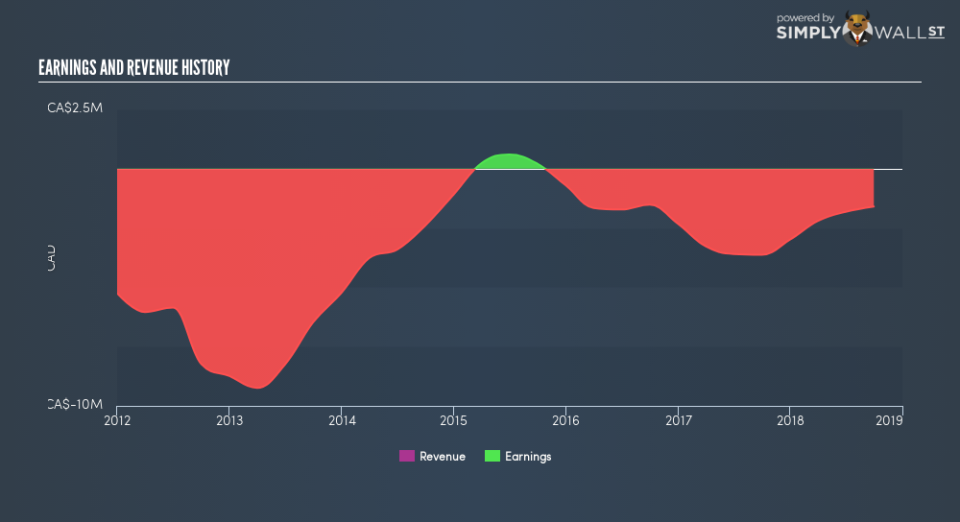Does Rockcliff Metals Corporation (CVE:RCLF) Have A Volatile Share Price?

If you own shares in Rockcliff Metals Corporation (CVE:RCLF) then it’s worth thinking about how it contributes to the volatility of your portfolio, overall. In finance, Beta is a measure of volatility. Modern finance theory considers volatility to be a measure of risk, and there are two main types of price volatility. The first category is company specific volatility. This can be dealt with by limiting your exposure to any particular stock. The other type, which cannot be diversified away, is the volatility of the entire market. Every stock in the market is exposed to this volatility, which is linked to the fact that stocks prices are correlated in an efficient market.
Some stocks see their prices move in concert with the market. Others tend towards stronger, gentler or unrelated price movements. Some investors use beta as a measure of how much a certain stock is impacted by market risk (volatility). While we should keep in mind that Warren Buffett has cautioned that ‘Volatility is far from synonymous with risk’, beta is still a useful factor to consider. To make good use of it you must first know that the beta of the overall market is one. A stock with a beta below one is either less volatile than the market, or more volatile but not corellated with the overall market. In comparison a stock with a beta of over one tends to be move in a similar direction to the market in the long term, but with greater changes in price.
See our latest analysis for Rockcliff Metals
What does RCLF’s beta value mean to investors?
Looking at the last five years, Rockcliff Metals has a beta of 1.73. The fact that this is well above 1 indicates that its share price movements have shown sensitivity to overall market volatility. If this beta value holds true in the future, Rockcliff Metals shares are likely to rise more than the market when the market is going up, but fall faster when the market is going down. Beta is worth considering, but it’s also important to consider whether Rockcliff Metals is growing earnings and revenue. You can take a look for yourself, below.
Does RCLF’s size influence the expected beta?
Rockcliff Metals is a noticeably small company, with a market capitalisation of CA$9.2m. Most companies this size are not always actively traded. Relatively few investors can influence the price of a smaller company, compared to a large company. This could explain the high beta value, in this case.
What this means for you:
Since Rockcliff Metals tends to moves up when the market is going up, and down when it’s going down, potential investors may wish to reflect on the overall market, when considering the stock. This article aims to educate investors about beta values, but it’s well worth looking at important company-specific fundamentals such as Rockcliff Metals’s financial health and performance track record. I urge you to continue your research by taking a look at the following:
Financial Health: Are RCLF’s operations financially sustainable? Balance sheets can be hard to analyze, which is why we’ve done it for you. Check out our financial health checks here.
Past Track Record: Has RCLF been consistently performing well irrespective of the ups and downs in the market? Go into more detail in the past performance analysis and take a look at the free visual representations of RCLF’s historicals for more clarity.
Other High-Performing Stocks: Are there other stocks that provide better prospects with proven track records? Explore our free list of these great stocks here.
To help readers see past the short term volatility of the financial market, we aim to bring you a long-term focused research analysis purely driven by fundamental data. Note that our analysis does not factor in the latest price-sensitive company announcements.
The author is an independent contributor and at the time of publication had no position in the stocks mentioned. For errors that warrant correction please contact the editor at editorial-team@simplywallst.com.

 Yahoo Finance
Yahoo Finance 
